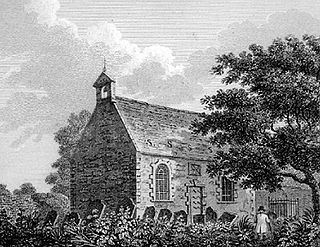Related Research Articles

James McNeill was an Irish colonial administrator, politician, and diplomat, who served as first High Commissioner to London and second Governor-General of the Irish Free State.
"Ireland's Call" is a song by Phil Coulter used as a national anthem by some sports competitors representing the island of Ireland, originally and most notably the men's rugby union team. It was commissioned by the Irish Rugby Football Union (IRFU) for the 1995 World Cup, because a substantial minority around 20% of the IRFU's members are from Northern Ireland and the use of the anthem of the Republic of Ireland was considered inappropriate.

Metro is the United Kingdom's highest-circulation freesheet tabloid newspaper. It is published in tabloid format by DMG Media. The newspaper is distributed from Monday to Friday mornings on public places in areas of England, Wales and Scotland. Copies are also handed out to pedestrians.
The Sunday Tribune was an Irish Sunday broadsheet newspaper published by Tribune Newspapers plc. It was edited in its final years by Nóirín Hegarty, who changed both the tone and the physical format of the newspaper from broadsheet to tabloid. Previous editors were Conor Brady, Vincent Browne, Peter Murtagh, Matt Cooper and Paddy Murray. The Sunday Tribune was founded in 1980, closed in 1982, relaunched in 1983 and entered receivership in February 2011 after which it ceased to trade.

Peadar Kearney was an Irish republican and composer of numerous rebel songs. In 1907 he wrote the lyrics to "A Soldier's Song", now the Irish national anthem. He was the uncle of Irish writers Brendan Behan, Brian Behan, and Dominic Behan.
Daily Mail and General Trust (DMGT) is a British multinational media company, the owner of the Daily Mail and several other titles. The 4th Viscount Rothermere is the chair and controlling shareholder of the company. The head office is located in Northcliffe House in Kensington, London. In January 2022, DMGT delisted from the London Stock Exchange following a successful offer for DMGT by Rothermere Continuation Limited.
Events in the year 1912 in Ireland.
Events in the year 1907 in Ireland.
The Herald is a nationwide mid-market tabloid newspaper headquartered in Dublin, Ireland, and published by Independent News & Media who are a subsidiary of Mediahuis. It is published Monday–Saturday. The newspaper was known as the Evening Herald until its name was changed in 2013.
The mass media in the Republic of Ireland includes all the media and communications outlets of the Republic.
"The Power of Four" is a joint anthem composed for the British & Irish Lions rugby union team. It was written by Neil Myers in 2005. It was commissioned by the Lions head coach, Sir Clive Woodward for the 2005 British & Irish Lions tour to New Zealand as the official song. It was intended to be a universal anthem for the British & Irish Lions to be sung before every game. However it was criticised as being uninspiring as members of the Lions squad did not engage with it and it was also noted that the fans did not like it. It was dropped as the Lions anthem after the 2005 tour and led to changes in the way music would be chosen in future Lions tours.

The Evening Telegraph was for most of its existence Ireland's leading evening newspaper. It was published in Dublin between 1871 and 1924. Its main rivals were the widely read Dublin Evening Mail and the less widely read Evening Herald.

"Amhrán na bhFiann", called "The Soldier's Song" in English, is the national anthem of the Republic of Ireland. The music was composed by Peadar Kearney and Patrick Heeney, the original English lyrics by Kearney, and the Irish-language translation, now usually the version heard, by Liam Ó Rinn. The song has three verses, but only the choral refrain is used as the national anthem.
The Daily Express of Dublin was an Irish newspaper published from 1851 to June 1921, and then continued for registration purposes until 1960.

Drumcondra Church of Ireland is a Church of Ireland church located in Drumcondra, Dublin, previously in the Civil Parish of Clonturk. The church and its churchyard contain memorials to a number of notable historical figures.
The Irish Reform Association (1904–1905) was an attempt to introduce limited devolved self-government to Ireland by a group of reform oriented Irish unionist land owners who proposed to initially adopt something less than full Home Rule. It failed to gain acceptance due to fierce opposition from Ulster Unionists who on the one hand claimed it went too far, and on the other hand denounced by Irish Nationalists who claimed it did not go far enough. Also known as the Irish Reform Movement, it ended in calamity for most of those concerned.
Liam Ó Rinn was a civil servant and Irish-language writer and translator, best known for "Amhrán na bhFiann", a translation of "The Soldier's Song", the Irish national anthem, which has largely eclipsed Peadar Kearney's English-language original.

Annmarie O'Riordan is an Irish singer (singer-songwriter).